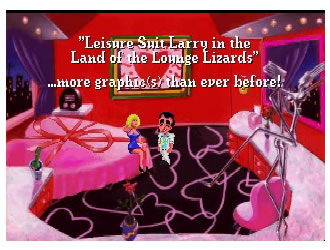
The recent New York Times piece about Palm’s response to the iPhone made me all nostalgic for the days when the Handspring Visor with phone attachment (pictured right) was the phone I really wanted.

The recent New York Times piece about Palm’s response to the iPhone made me all nostalgic for the days when the Handspring Visor with phone attachment (pictured right) was the phone I really wanted.
A couple of quick items related to the Newspapers Need Nerds! article posted on March 8th:
 5 Ways To Know When It’s Time To Find Another Job is an InformationWeek article based on the advice of experts from Challenger Gray & Christmas and Monster.com that lists five signs that it may be time to dust off the ol’ resume and start looking around.
5 Ways To Know When It’s Time To Find Another Job is an InformationWeek article based on the advice of experts from Challenger Gray & Christmas and Monster.com that lists five signs that it may be time to dust off the ol’ resume and start looking around.
The article explains the reluctance of high-tech workers to leave their current jobs, even though such reluctance may be unwarranted:
After the dot-com bubble burst several years ago, a lot of high-tech workers simply felt lucky to have a job–any job. Gone were the days when chief security officers, Java developers, and project managers could pick up a new, and better, job as easily as picking up a latte. Human Resources managers stopped worrying about how to keep good employees from leaving for better jobs. People who had decent jobs counted themselves lucky, kept their heads down and just hoped they weren’t next to be outsourced or otherwise pink slipped.
Those days are gone. High-tech jobs are being created. There are new positions to move into. A lot of people, though, aren’t picking up stakes and moving on. They’re stuck in that head-down mentality and maybe they’re missing the opportunity to find that great next job.
Here are the five signs…
Employee dissatisfaction is at an all-time high, according to a national survey released Monday by the Conference Board, a New York-based private research group.In a survey of 5,000 U.S. households, more than half of all respondents said they dislike their current jobs, compared to less than 40 percent in a similar survey conducted 20 years ago.
These days, the lowest levels of job satisfaction are among younger workers, the survey found. Only 39 percent of respondents aged 25 and younger said they liked their current jobs — the lowest level in the survey’s 20-year history — compared to 45 percent for workers between 45 and 54.
By contrast, job-satisfaction levels are highest among older workers, with nearly half of all respondents between 55 and 64, and 65 and over, feeling satisfied by their employment situation.
Job-satisfaction levels tend to rise as the hours worked per week increase, survey results indicated, but at 60 or more hours, satisfaction levels drop again. Additionally, respondents who expect to remain in their current position a year from now reported higher satisfaction levels than those who see themselves working elsewhere.
 Jeff “Coding Horror” Atwood writes about why he’s not getting full use of the 4 gigs of RAM he put into his computer. He’s got a 32-bit system, which means that the largest amount of space that it can address without resorting to jiggery-pokery is 232 bytes, which is 4 gigabytes, which is 4,096 megabytes or 4,294,967,296 bytes. Any address outside the zone bounded by 0 and 4,294,967,296 is “out of its field of vision”.
Jeff “Coding Horror” Atwood writes about why he’s not getting full use of the 4 gigs of RAM he put into his computer. He’s got a 32-bit system, which means that the largest amount of space that it can address without resorting to jiggery-pokery is 232 bytes, which is 4 gigabytes, which is 4,096 megabytes or 4,294,967,296 bytes. Any address outside the zone bounded by 0 and 4,294,967,296 is “out of its field of vision”.
After installing extra RAM in his machine for a grand total of 4 gigs (which according to this article is the “sweet spot” for Vista), Jeff wondered why the System Information window on his machine said that there was only 3,454 megs of RAM on his machine. “Where, exactly,” asks Jeff, “did the other 642 megabytes of my memory go?”
It turns out that it went to memory-mapped I/O. CPUs access things in the system via their addresses. Most of a computer’s address space is devoted to RAM, some to ROM, and the rest is pretty much for I/O. In order to have I/O (without which your computer would be largely useless to you), you’ve got to sacrifice some address space that would otherwise go to RAM. Jeff explains it in detail quite well and ends with these two points:
I myself have been spared the 4 gig limitation. The Taint (my name for the Acer Ferrari laptop sent to me by Microsoft in their controversial campaign to promote Vista in the blogosphere) has a 64-bit AMD CPU and runs the x64 version of Windows Vista Ultimate. From a RAM expansion point of view, I’m set for a while.
Now when considering the availability of drivers, that’s another story…
We’ve pointed to two Consumerist articles: A Former Verizon Sales Rep’s 8 Tips for Buying a Verizon Phone and 7 Confessions of a Former Cingular Sales Rep, in which recovering salespeople for Verizon and Cingular provide tips on how to get the best deal from their former employers.
Now a T-Mobile sales rep has come forward and revealed to Consumerist a list of 11 tips for getting the best deal from T-Mobile:
I’m still waiting for someone from Bell Mobility to spill the beans on how to get the best deal from them…

The article Developers aim to lure women to adult games starts off like any other article about attracting women to videogames, with the usual talk of the problems inherent in games designed for a specific demographic, namely the white straight techo-savvy male.
The first sign that it’s not like most articles about the gender imbalance in gaming is the admission of a truth that anyone who’s ever worked at a bar (George and I did in college) knows: if you want to lure the men, you’ve got to lure the women.
Then, after the halfway point, the article — either intentionally or not — just gets sillier. First, there’s the explanation by the creators of the Jenna Jameson [link safe for work] game Virtually Jenna [link not safe for work] of how they made their game more appealing to women by emphasizing the story aspects of the game:
We’re evolving [the] story like Penthouse Forum, and you finish it off, so it gets more cerebral.
Having read heard about some Penthouse Forum letters myself, I cannot recall any cerebral aspects.
When presented with the question of why gay men are underserved by adult games, out come the weasel words:
Several participants in the discussion said that gay men and women are also underserved. And one main reason, it was agreed, is that because straight couples have different body movements when having sex than do gay men or women, there’s often too much animation work required to satisfy those markets.
“Everything we want people to be able to do has to be animated separately,” Dudley said. The way that men interact with men differs from how men interact with women. So if we’re going to deal with gay sex, which we do, then the amount of work we have to do” skyrockets.
Working in an area of Toronto that is known for the number of offices for adult web sites and knowing some of their employees, I’ve heard graphic artists and animators boast of the long hours they spend toiling over their beloved craft. I think that they’re just making excuses — these guys, faced with the prospect of long sessions of animating hot man-on-man action, are simply looking for a (ahem) back door. Surely they can find some gay animators who’d love doing that work as much as their straight counterparts enjoy working on the Jenna kinematics.
After all, they boasted about a certain feature in the straight-male-oriented Virtually Jenna that sounded it required a lot of extra work:
Abram said that Virtually Jenna allows players to highly customize their characters, including giving those wanting men with different size genitalia the ability to get what they want.
The same goes for what Abram called “ass physics,” essentially the firmness of the male buttocks.
“I guarantee you, ‘ass physics’ has never been said at GDC before,” Brathwaite said.
I can guarantee that it’s never been said at Global Nerdy until just now.